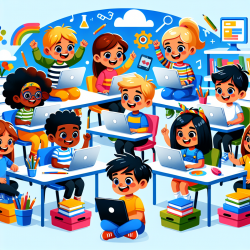Understanding the Power of Gratitude in Child Development
Gratitude is more than just a polite gesture; it's a powerful emotion that can significantly impact mental health and overall well-being. A recent study titled "Validation of a Spanish translation of the Gratitude Questionnaire (GQ-6) with a Chilean sample of adults and high schoolers" sheds light on the importance of gratitude, particularly in young populations. This research provides valuable insights for practitioners looking to enhance their therapeutic approaches.
Research Findings: The Gratitude Questionnaire (GQ-6)
The study conducted by Langer et al. (2016) focused on validating the Gratitude Questionnaire (GQ-6) in Chilean adolescents and adults. The research involved two groups: 668 high school adolescents and 331 adults. The findings revealed that gratitude is a measurable trait that correlates positively with happiness and negatively with depression.
For adolescents, a 5-item version of the GQ-6 was found to be most effective, while adults benefited from the full 6-item version. The results indicated that gratitude is a stable trait across different genders and age groups, making it a reliable measure for evaluating gratitude in diverse populations.
Why Gratitude Matters in Child Development
Gratitude has been linked to numerous positive outcomes, including improved social integration, life satisfaction, and mental health. In adolescents, gratitude can lead to prosocial behavior and better coping strategies. For practitioners working with children, incorporating gratitude-based interventions can be a game-changer.
- Enhances Emotional Well-being: Gratitude fosters positive emotions, which can reduce stress and anxiety.
- Promotes Social Skills: Grateful children are more likely to engage in prosocial behaviors, strengthening their social networks.
- Improves Academic Performance: Positive emotions like gratitude are associated with better learning outcomes.
Implementing Gratitude in Therapy
Practitioners can integrate gratitude into their sessions by encouraging children to keep gratitude journals, engage in gratitude exercises, or participate in group activities focused on expressing thankfulness. These practices not only enhance the child's emotional health but also create a positive environment for learning and development.
Encouraging Further Research
While the study provides a robust foundation, there is still much to explore about the role of gratitude in child development. Practitioners are encouraged to conduct further research to understand how gratitude interventions can be tailored to different cultural contexts and individual needs.
To read the original research paper, please follow this link: Validation of a Spanish translation of the Gratitude Questionnaire (GQ-6) with a Chilean sample of adults and high schoolers.










